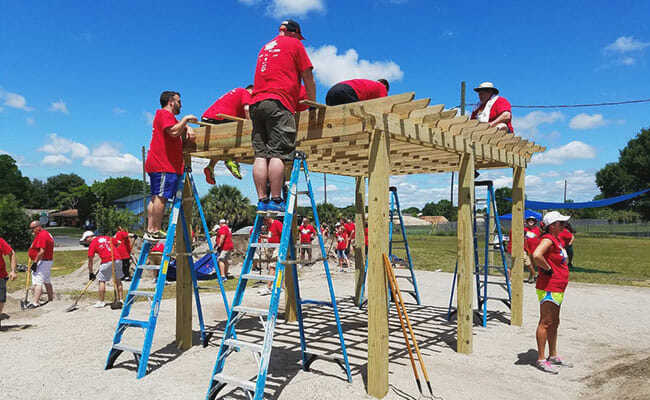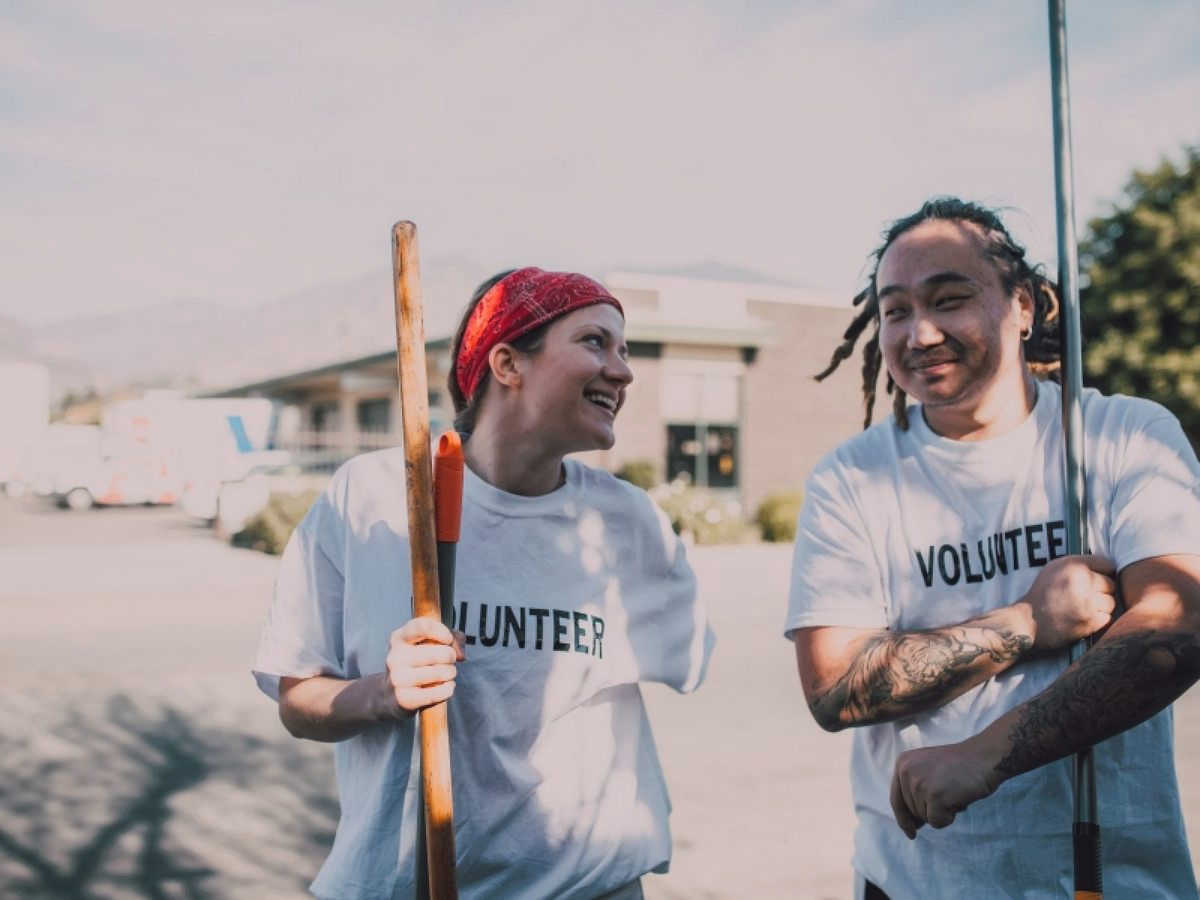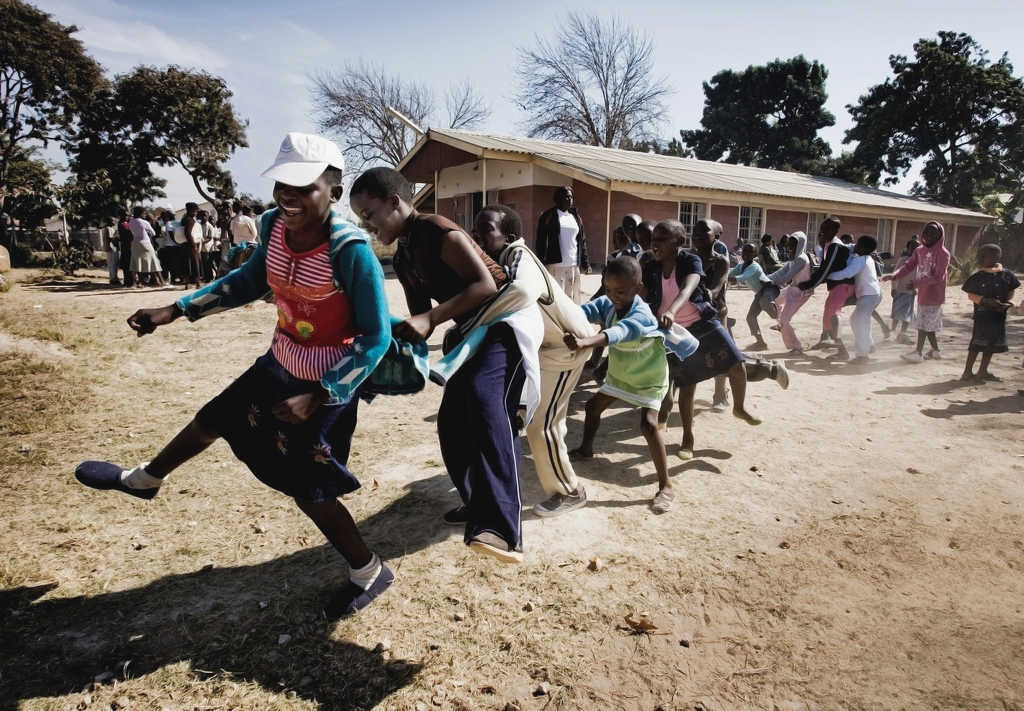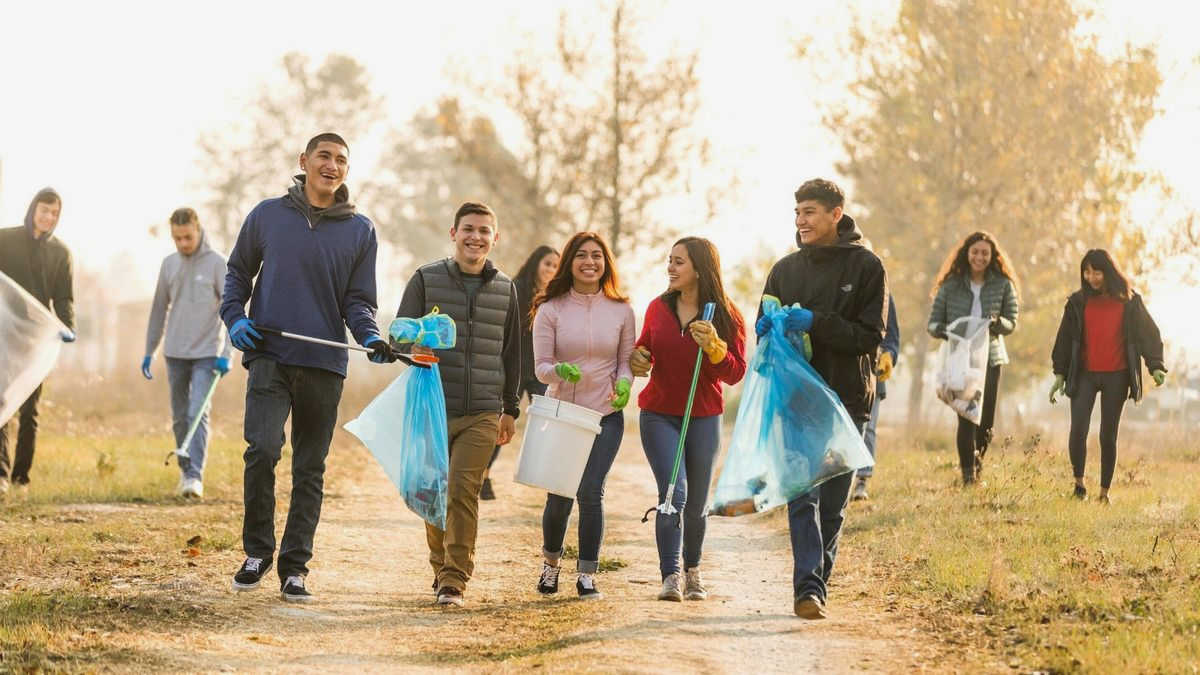Volunteering is often seen as a way to give back to the community, but its impact goes far beyond individual acts of service. It plays a crucial role in shaping civil society and building stronger communities. When individuals come together to volunteer their time and talents, they create a network of support that fosters social cohesion, strengthens democratic participation, and addresses pressing social issues.
One of the key ways in which local volunteering shapes civil society is by promoting social cohesion. When people volunteer, they connect with others who share a common goal and develop relationships based on trust and mutual respect. These connections extend beyond the walls of the volunteering organization and into the wider community, creating a sense of belonging and collective identity. Through these connections, individuals are more likely to engage in other civic activities and work together towards common goals, ultimately leading to a stronger and more cohesive community.
In addition to promoting social cohesion, local volunteering also strengthens democratic participation. By engaging in volunteer activities, individuals develop a sense of empowerment and agency. They realize that they can make a difference in their community and have a voice in shaping its future. This empowerment extends to other areas of civic life as well, as volunteers are more likely to become active participants in community decision-making processes and advocate for positive change. By giving individuals a stake in their community, local volunteering helps to build a vibrant and inclusive civil society.
Furthermore, local volunteering is an effective tool for addressing pressing social issues. Volunteers have the unique ability to identify and respond to the specific needs of their communities. Whether it is by providing assistance to vulnerable populations, organizing events that promote social awareness, or advocating for policy changes, volunteers play a crucial role in tackling local challenges. Their collective efforts can lead to lasting social change and improve the overall well-being of the community. By leveraging the power of local volunteering, civil society can address issues that might otherwise go unnoticed or unaddressed, making a significant impact on the lives of individuals and the community as a whole.
Overall, local volunteering is an essential component of civil society, promoting social cohesion, strengthening democratic participation, and addressing pressing social issues. Through individual acts of service, volunteers create a ripple effect that extends far beyond the immediate community. By recognizing and supporting the value of local volunteering, we can build stronger communities and create a more inclusive and resilient civil society.
Building Stronger Communities
The concept of building stronger communities is centered around the idea of local volunteering and its impact on civil society. By actively participating and contributing time and effort to various community initiatives, individuals can play a crucial role in creating a sense of unity and belonging among community members.
Local volunteering acts as a catalyst for building stronger communities by fostering social connections and promoting a sense of shared responsibility. When individuals come together to work towards a common goal, they form meaningful relationships and develop a deeper understanding and appreciation for the needs and challenges within their community.
The Benefits of Local Volunteering
Engaging in local volunteering activities brings about a myriad of benefits that enhance the strength and resilience of communities. Firstly, it provides an avenue for individuals to make a positive impact and contribute to the betterment of their community. Whether it is assisting in community clean-up efforts or organizing fundraisers for local charities, every act of volunteering helps to create a stronger and more vibrant community.
Secondly, local volunteering promotes a culture of empathy and understanding. When individuals engage in volunteering, they have the opportunity to step outside their own lives and gain perspective on the challenges faced by others in their community. This increased awareness fosters empathy and encourages people to support and uplift those in need, further strengthening the community bonds.
Creating Lasting Change
In order to create lasting change and build stronger communities, it is essential for local volunteering efforts to be sustainable and inclusive. This means that community members of all backgrounds and abilities should have the opportunity to participate and contribute to community initiatives.
Moreover, collaboration and cooperation between different community organizations and stakeholders are key in creating a collective impact that addresses the diverse needs and aspirations of the community. By working together, these stakeholders can leverage their resources and expertise to implement effective solutions and drive positive change.
In conclusion, building stronger communities is a collaborative effort that relies on the active engagement of individuals through local volunteering. By volunteering their time and skills, individuals can contribute to the social fabric of their communities, foster empathy and understanding, and create lasting change that benefits everyone.
The Importance of Local Volunteering
Local volunteering plays a crucial role in shaping civil society and building stronger communities. It is a powerful catalyst for positive change and has a profound impact on both the individuals who volunteer and the communities they serve.
First and foremost, local volunteering fosters a sense of community and belonging. When individuals come together to volunteer their time and skills, they form connections and build relationships with others who share a common goal of improving their community. This sense of belonging is essential for creating a strong and cohesive civil society where people care for and support one another.
Moreover, local volunteering empowers individuals to take an active role in addressing local issues and making a difference in their neighborhoods. By volunteering, individuals gain a firsthand understanding of the challenges and opportunities within their community, allowing them to contribute in meaningful ways. This active participation not only benefits the community but also helps individuals develop a sense of agency and empowerment.
Additionally, local volunteering helps to address social inequalities and promote inclusivity. It provides individuals from different backgrounds and walks of life with the opportunity to come together and work towards a common goal. By engaging in local volunteering, individuals can challenge stereotypes, bridge divides, and promote understanding and empathy among diverse groups.
In conclusion, local volunteering is of utmost importance for building stronger communities and shaping civil society. It fosters a sense of community, empowers individuals to take action, and promotes inclusivity. By getting involved in local volunteering, individuals can contribute to positive change and make a lasting impact on their community.
Contributions of Local Volunteers
Local volunteers play a crucial role in shaping civil society and building stronger communities. Their contributions are invaluable and have a significant impact on the well-being of the community as a whole. Through their selflessness and dedication, local volunteers bring about positive change and create a sense of unity among community members.
1. Strengthening Social Cohesion
One of the key contributions of local volunteers is their role in strengthening social cohesion within the community. By organizing and participating in various community-based activities, such as charity events, sports tournaments, or cultural festivals, volunteers bring people together and foster a sense of belonging. Their efforts help to break down social barriers and promote understanding, empathy, and cooperation among community members.
2. Addressing Local Challenges
Local volunteers actively engage in addressing the unique challenges faced by their communities. Whether it is through providing support to vulnerable groups, such as the elderly or those experiencing homelessness, or organizing clean-up campaigns to improve the environment, volunteers make a significant difference in the lives of their fellow community members. Their dedication and willingness to tackle local issues ensure that the community’s needs are met and contribute to overall well-being.
3. Promoting Civic Participation
Another important contribution of local volunteers is their role in promoting civic participation. Through volunteering, community members become more actively engaged in decision-making processes and take part in community initiatives. Local volunteers serve as role models, inspiring others to get involved and make a difference. They encourage individuals to voice their opinions, contribute their skills and knowledge, and actively participate in shaping the future of their community.
4. Building Trust and Resilience
The efforts of local volunteers help to build trust and resilience within communities. By working together towards common goals, volunteers foster a sense of trust among community members, creating a supportive and inclusive environment. When faced with challenges, whether natural disasters or social hardships, local volunteers are often at the forefront of providing assistance and support. Their presence instills a sense of reassurance and resilience, allowing the community to recover and rebuild stronger than before.
In conclusion, local volunteers make significant contributions to shaping civil society and building stronger communities. Their selfless acts of service strengthen social cohesion, address local challenges, promote civic participation, and build trust and resilience. The dedication and passion of local volunteers are essential in creating a sense of unity, well-being, and empowerment among community members.
Fostering Civic Engagement
Civic engagement is essential for building stronger communities and shaping civil society. It involves individuals actively participating in community affairs, taking responsibility for societal issues, and contributing to positive change. To foster civic engagement, local volunteering plays a crucial role in providing opportunities for individuals to connect with their community, develop a sense of belonging, and make a meaningful impact.
By participating in local volunteering initiatives, individuals have the chance to engage with diverse groups of people who share a common goal of making their community a better place. This interaction facilitates the exchange of ideas, perspectives, and experiences, leading to a greater understanding and appreciation of different cultures, backgrounds, and abilities. It also promotes social cohesion and unity, as people come together to address shared challenges and work towards common solutions.
The Benefits of Civic Engagement
Civic engagement not only strengthens communities but also empowers individuals. By actively participating in community projects and initiatives, individuals develop valuable skills such as leadership, teamwork, problem-solving, and communication. These skills are transferable to various areas of life and can enhance personal and professional growth.
Civic engagement also fosters a sense of purpose and fulfillment. When individuals see the positive impact they can make through their actions, they become more motivated to continue contributing to their community. This sense of purpose can improve mental well-being, promote social connections, and increase overall satisfaction with life.
In addition, civic engagement helps build trust and accountability within communities. When individuals are actively involved in their community, they become more invested in its success and are more likely to hold themselves and others accountable for their actions. This creates a sense of collective responsibility and strengthens the social fabric of a community.
In conclusion, fostering civic engagement through local volunteering is crucial for building stronger communities and shaping civil society. It provides individuals with opportunities to connect with their community, develop valuable skills, and make a positive impact. By actively participating in community affairs, individuals contribute to positive change and create a sense of unity and purpose within their communities.
Empowering Individuals Through Volunteering
Volunteering is a powerful tool for empowering individuals and strengthening communities. When individuals participate in local volunteering initiatives, they gain a sense of purpose and fulfillment. By contributing their time, skills, and resources to the community, individuals feel a sense of agency and impact. This empowerment fosters personal growth and development, as volunteers learn new skills, gain confidence, and expand their networks.
Volunteering also empowers individuals by providing them with opportunities to make a positive difference in the lives of others. Through their volunteer work, individuals can directly impact the lives of those in need, whether it be by providing support to marginalized groups, mentoring youth, or assisting individuals in times of crisis. By actively engaging in their communities, volunteers can create real change and contribute to a more equitable and inclusive society.
Furthermore, volunteering can empower individuals by promoting civic engagement and social responsibility. When individuals take an active role in their communities through volunteering, they become more aware of social issues and the needs of others. This awareness can lead to increased empathy and a greater understanding of the challenges faced by marginalized groups. As individuals become more informed and engaged citizens, they are more likely to advocate for positive social change and contribute to a stronger civil society.
In conclusion, volunteering is an essential means of empowering individuals. It provides a sense of purpose, fosters personal growth, and enables individuals to make a positive impact on their communities. By participating in local volunteering initiatives, individuals can develop skills, gain confidence, and expand their networks. They can also become more aware of social issues and actively contribute to creating a more equitable and inclusive society. Volunteering is a powerful tool for empowering individuals and building stronger communities.
Strengthening Social Connections
Community volunteering plays a vital role in strengthening social connections within a society. By engaging in local volunteering activities, individuals have the opportunity to interact and build relationships with people from diverse backgrounds. This helps foster understanding, empathy, and respect for one another, ultimately breaking down social barriers and promoting cohesion.
Moreover, volunteering provides a platform for people to come together and collaborate towards a common goal. Whether it’s a community clean-up project or a fundraiser for a local charity, volunteering brings individuals together, encouraging teamwork and cooperation. Through these shared experiences and working towards a shared objective, people form lasting bonds and friendships, which contribute to a stronger sense of community.
Volunteering also creates opportunities for individuals to connect with marginalized or vulnerable groups within society. By assisting organizations that support these groups, volunteers not only provide valuable assistance but also create an environment of inclusivity and support. This interaction allows people to understand the challenges faced by others, leading to a greater sense of empathy and promoting a more compassionate society.

Furthermore, volunteering helps bridge the generational divide by bringing together individuals of different age groups. Many community volunteering initiatives involve intergenerational activities, such as mentoring programs or senior support services, where young and old can come together and learn from one another. These exchanges foster mutual respect, understanding, and the sharing of knowledge, ultimately contributing to the well-being of society as a whole.
In summary, community volunteering is a powerful tool for strengthening social connections within a society. It helps foster understanding, promotes teamwork, and creates inclusive environments. By bringing people together and providing opportunities for interaction, volunteering contributes to the development of a more empathetic, supportive, and connected civil society.
Enhancing Community Wellness
The well-being of a community is crucial for its overall development and prosperity. Community wellness encompasses various aspects, including physical health, mental well-being, and social connections. When individuals in a community are healthy and connected, it fosters a positive environment and strengthens the community as a whole.
Local volunteering plays a significant role in enhancing community wellness. Through their efforts, volunteers contribute to the physical health of community members by organizing fitness programs, health fairs, and workshops on healthy living. They raise awareness about the importance of exercise, proper nutrition, and disease prevention, empowering individuals to make informed choices for their well-being.
Moreover, volunteers also address the mental well-being of the community. They organize support groups and counseling sessions for those who may be struggling with mental health issues or facing emotional challenges. By creating safe spaces for people to open up and seek help, volunteers promote mental wellness and reduce stigma associated with mental health problems.
Another aspect of community wellness that local volunteering shapes is the development of strong social connections. Volunteers bring people together through community events, such as festivals, sports tournaments, and neighborhood gatherings. These activities encourage social interaction, foster a sense of belonging, and build social networks that support individuals during times of need.
In conclusion, enhancing community wellness is an essential goal that can be achieved through local volunteering. By promoting physical health, addressing mental well-being, and fostering social connections, volunteers contribute to the overall well-being of the community and shape a stronger civil society.
Promoting Equality and Inclusivity
Volunteering plays a crucial role in promoting equality and inclusivity in our communities. By engaging individuals from diverse backgrounds and providing them equal opportunities to contribute, local volunteering initiatives help create a more inclusive civil society.
One way volunteering promotes equality is by breaking down barriers and fostering understanding among different groups. Through shared experiences and collaborative efforts, volunteers from different ethnic, cultural, and socioeconomic backgrounds can learn from one another and challenge stereotypes and prejudices. This not only promotes equality but also helps build stronger, more cohesive communities.
Moreover, local volunteering initiatives often focus on addressing the needs of marginalized or underrepresented communities. By dedicating time and resources to support these communities, volunteers contribute to reducing inequalities and creating a more just society. Whether it’s providing educational support to disadvantaged children, offering mentorship programs for youth at risk, or advocating for the rights of marginalized groups, volunteering can have a profound impact on promoting equality.
Volunteering also plays a role in promoting inclusivity by creating spaces and opportunities for individuals to participate and engage in community activities. Through volunteer-led initiatives, people who might otherwise feel excluded or marginalized can find a sense of belonging and contribute their skills and talents for the betterment of the community. This inclusivity not only benefits the individuals involved but also enriches the overall community by tapping into a diverse range of perspectives and experiences.
In conclusion, local volunteering initiatives are essential in promoting equality and inclusivity in our communities. By welcoming individuals from diverse backgrounds, challenging biases, and addressing the needs of marginalized groups, volunteers contribute to building a more inclusive and equitable civil society.
Creating Opportunities for Skill Development
In the context of building stronger communities, local volunteering plays a crucial role in providing opportunities for skill development. By engaging in volunteer work, individuals have the chance to acquire and enhance a wide range of skills that can be beneficial in both personal and professional settings.
Volunteering allows individuals to develop important interpersonal skills. Through interaction with diverse groups of people, volunteers learn how to communicate effectively, build relationships, and collaborate with others towards a common goal. These skills are essential for building strong and cohesive communities, as they enable individuals to connect, empathize, and work together towards creating positive change.
Moreover, volunteering offers opportunities for individuals to develop and refine specific technical skills. Whether it’s organizing events, managing projects, or providing assistance in specialized areas such as education or healthcare, volunteers can acquire practical skills that can enhance their resume and open doors to new opportunities. These technical skills not only benefit the individuals themselves but also contribute to the overall capacity and effectiveness of local organizations and initiatives.
Volunteering also provides a platform for individuals to develop and demonstrate leadership skills. By taking on responsibilities, coordinating teams, and making important decisions, volunteers can hone their leadership abilities. These skills are valuable not only in community settings but also in professional settings, as they demonstrate an individual’s ability to take initiative, inspire others, and drive positive change.
In addition to interpersonal, technical, and leadership skills, volunteering can also foster the development of various personal qualities. Through volunteering, individuals can cultivate empathy, compassion, and a sense of social responsibility. These qualities are essential for building stronger communities, as they promote inclusivity, understanding, and a collective commitment to addressing social issues.
In conclusion, local volunteering serves as a rich source of opportunities for skill development. From interpersonal and technical skills to leadership abilities and personal qualities, volunteering offers individuals a platform to acquire and enhance a diverse range of skills that contribute to the overall development and resilience of communities.
Building Trust and Cohesion
Building trust and cohesion within a community is crucial for fostering a strong civil society. When individuals feel a sense of trust and connection to their neighbors and fellow community members, they are more likely to actively participate in volunteer activities and work together towards common goals.
Effective communication plays a vital role in developing trust and cohesion. It is important for community leaders and volunteers to promote transparent and open lines of communication, ensuring that everyone’s voices are heard and respected. This can be achieved through community meetings, online forums, or even simple conversations between neighbors.

Celebrating diversity
Recognizing and celebrating the diverse talents, backgrounds, and perspectives within a community is another way to build trust and cohesion. By valuing and embracing the unique contributions of each individual, a community can create an inclusive environment where everyone feels appreciated and accepted.

Collaborative decision-making
Engaging community members in the decision-making process is key to building trust and cohesion. By involving residents in discussions and allowing them to have a say in important matters, a sense of ownership and commitment is fostered. This collaborative approach empowers individuals to take an active role in shaping their community and strengthens the bond between its members.
Building trust and cohesion within a community requires time, effort, and genuine commitment from all individuals involved. When trust is established and a sense of cohesion is present, a community can effectively address challenges and work together towards creating a stronger, more resilient civil society.
Inspiring Future Generations
One key benefit of local volunteering is its ability to inspire future generations. When young people witness the positive impact that volunteering has on their community, it can spark a desire within them to get involved and make a difference.
Role Models: Local volunteers serve as role models for young people, showing them the importance of giving back and being active citizens. By seeing individuals of all ages dedicating their time and effort to help others, young people can develop a sense of empathy and understand the significance of community involvement.
Mentorship: Through local volunteering, young people have the opportunity to connect with experienced volunteers who can serve as mentors. These mentors can provide guidance, share their own experiences, and offer advice on how to navigate challenges and make a meaningful impact in the community. This mentorship can shape the values and attitudes of young individuals as they grow and develop.
Skills Development: Volunteering often requires individuals to learn new skills or hone existing ones. When young people get involved in local volunteering, they have the chance to develop a wide range of skills, such as leadership, teamwork, communication, and problem-solving. These skills not only benefit them in their volunteer work but also in their future education and careers.

Social Networks: Engaging in local volunteering exposes young people to a diverse range of individuals across different backgrounds and generations. Through these interactions, they can build social networks and establish relationships with people who share their passion for making a positive impact in the community. These connections can be valuable resources for future collaborations and opportunities.
Vision for the Future: Local volunteering can instill a sense of hope and optimism in future generations. By seeing the collective efforts of volunteers, young people can envision a future where communities are strong, individuals are empowered, and everyone works together for the greater good. This vision can motivate them to become lifelong advocates for community engagement and civic participation.
Inspiring future generations through local volunteering is essential for shaping a civil society that is driven by compassion, empathy, and a sense of responsibility towards one another. By investing in the youth and instilling in them the values of community involvement, we can build stronger communities that thrive and endure.





